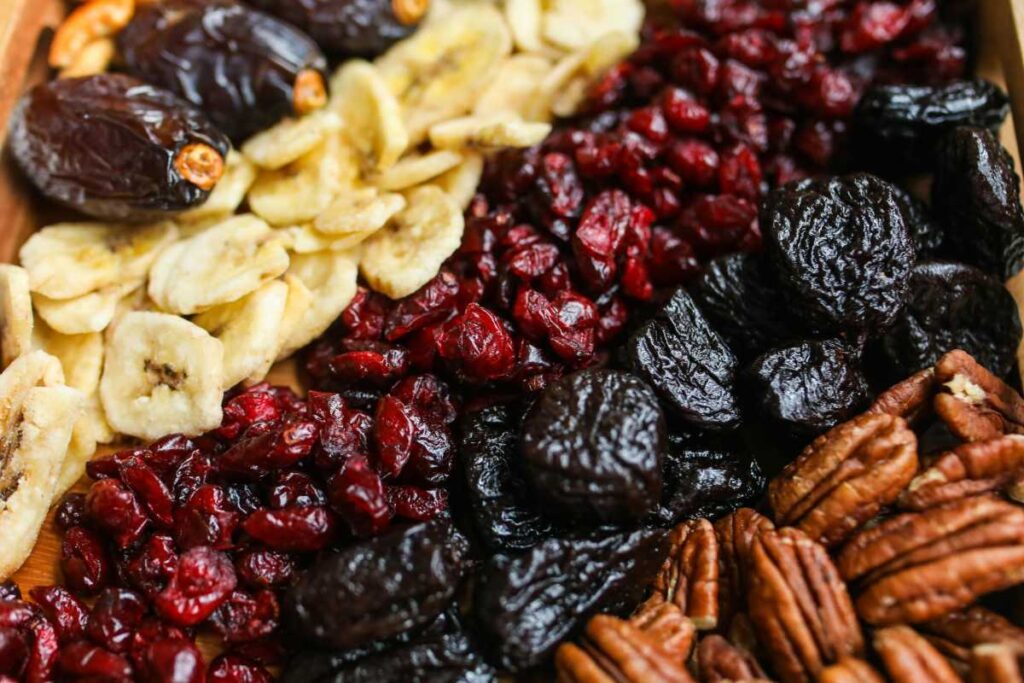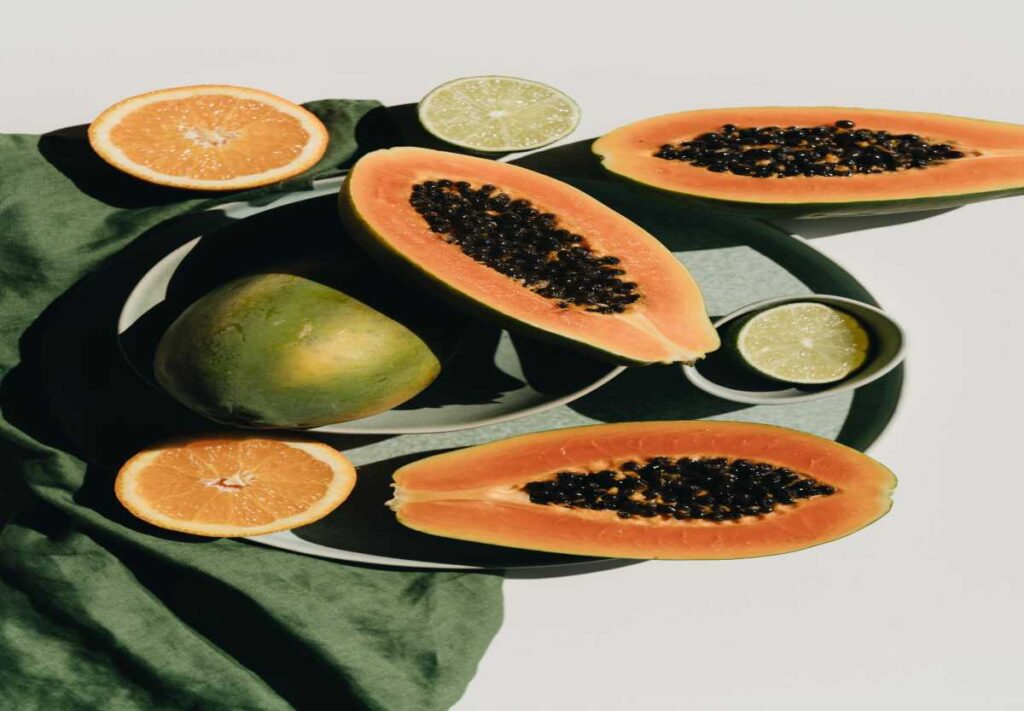Thinning hair and hair loss are common concerns for many people, but the good news is that a proper diet can play a significant role in promoting healthy hair growth and preventing further thinning. Hair is made up of proteins, vitamins, and minerals, so ensuring your body gets the right nutrients is key to supporting hair health. In this guide, we will explore the best foods and nutrition tips to help combat hair thinning and promote hair regrowth.
1. Protein-Rich Foods
Hair is primarily composed of a protein called keratin. To keep your hair strong and healthy, it’s crucial to get enough protein in your diet.
- Good sources of protein:
- Lean meats (chicken, turkey, lean beef)
- Fish (salmon, tuna, sardines)
- Eggs (rich in biotin, a vital nutrient for hair)
- Legumes (lentils, chickpeas, beans)
- Nuts and seeds (almonds, walnuts, chia seeds)
- Why it helps: Protein helps repair damaged hair follicles and promotes new hair growth. Without adequate protein, your hair may become weak and more prone to shedding.
2. Iron-Rich Foods
Iron deficiency is a common cause of hair thinning, as it can lead to decreased oxygen supply to hair follicles, affecting hair growth.
- Good sources of iron:
- Leafy greens (spinach, kale, Swiss chard)
- Red meat (beef, lamb)
- Poultry (chicken, turkey)
- Shellfish (oysters, clams, mussels)
- Legumes (lentils, beans, chickpeas)
- Why it helps: Iron helps red blood cells carry oxygen to hair follicles, promoting hair growth and preventing hair loss. Pair iron-rich foods with vitamin C (like citrus fruits) to enhance absorption.
3. Omega-3 Fatty Acids
Omega-3 fatty acids are essential fats that help nourish hair and promote healthy scalp circulation. They also support the production of sebum, the natural oil that moisturizes your scalp and prevents hair dryness.
- Good sources of omega-3 fatty acids:
- Fatty fish (salmon, mackerel, sardines)
- Flaxseeds and chia seeds
- Walnuts
- Hemp seeds
- Algal oil (good plant-based source)
- Why it helps: Omega-3 fatty acids improve scalp health by reducing inflammation and promoting hair growth. They also help prevent dryness and flakiness, which can lead to hair thinning.
4. Vitamin C-Rich Foods
Vitamin C is a powerful antioxidant that helps protect hair follicles from oxidative stress, which can contribute to hair loss. It also plays a key role in collagen production, a protein that supports the structure of hair.
- Good sources of vitamin C:
- Citrus fruits (oranges, grapefruits, lemons)
- Bell peppers (especially red and yellow)
- Strawberries
- Kiwi
- Broccoli
- Why it helps: Vitamin C boosts collagen production, strengthening hair and preventing damage. It also helps the body absorb iron from plant-based foods, further supporting hair health.
5. Zinc-Rich Foods
Zinc is an essential mineral that plays a critical role in hair tissue growth and repair. It also helps keep the oil glands around hair follicles working properly.
- Good sources of zinc:
- Oysters and shellfish
- Red meat and poultry
- Pumpkin seeds
- Cashews
- Chickpeas
- Quinoa
- Why it helps: Zinc deficiency can lead to hair thinning and even hair loss. Zinc promotes cell growth and helps repair tissue, supporting healthy hair follicles.

6. Biotin-Rich Foods
Biotin (vitamin B7) is a water-soluble vitamin that plays a key role in maintaining healthy hair, skin, and nails. Biotin deficiencies are commonly linked to hair thinning.
- Good sources of biotin:
- Egg yolks
- Nuts (especially almonds and walnuts)
- Legumes (lentils, beans)
- Whole grains (oats, barley, brown rice)
- Bananas
- Why it helps: Biotin strengthens hair and promotes regrowth by improving the keratin structure. It’s one of the most widely recommended nutrients for hair loss prevention.
7. Vitamin D-Rich Foods
Vitamin D is essential for healthy hair follicles and hair growth. A deficiency in vitamin D can contribute to hair thinning, particularly in cases of conditions like alopecia areata.
- Good sources of vitamin D:
- Fatty fish (salmon, tuna)
- Egg yolks
- Mushrooms (especially those exposed to UV light)
- Fortified foods (such as fortified milk and cereals)
- Why it helps: Vitamin D supports hair follicle cycling and can help prevent hair loss. It’s especially important for maintaining a healthy scalp and encouraging hair regrowth.
8. Selenium-Rich Foods
Selenium is an important antioxidant that helps protect hair follicles from damage and supports hair growth. It also plays a role in thyroid function, which affects hair growth.
- Good sources of selenium:
- Brazil nuts
- Sunflower seeds
- Fish (tuna, halibut)
- Eggs
- Why it helps: Selenium promotes healthy hair by fighting oxidative stress and regulating thyroid function, which is crucial for hair growth.
9. Vitamin E-Rich Foods
Vitamin E is another potent antioxidant that helps protect hair from free radical damage. It also improves blood circulation to the scalp, promoting healthier hair growth.
- Good sources of vitamin E:
- Nuts and seeds (almonds, sunflower seeds)
- Spinach and kale
- Avocados
- Olive oil
- Why it helps: Vitamin E helps prevent oxidative stress in hair follicles, encouraging hair growth and reducing hair thinning.
10. Hydrating Foods
Keeping your body well-hydrated is important for healthy hair growth. Dehydration can lead to dry, brittle hair that’s more prone to breakage and thinning.
- Good hydrating foods:
- Cucumbers
- Watermelon
- Coconut water
- Celery
- Why it helps: Proper hydration keeps hair moisturized and healthy, reducing the risk of breakage and supporting the hair growth cycle.
Conclusion: A Balanced Diet for Healthy Hair
Proper nutrition plays a vital role in maintaining healthy hair and preventing hair loss. Incorporating a variety of protein-rich foods, vitamins, minerals, and healthy fats into your diet can help nourish your hair from the inside out. In addition to a balanced diet, maintaining a healthy lifestyle, managing stress, and avoiding harmful hair treatments are essential for promoting strong, vibrant hair.
If you’re experiencing significant hair loss, it’s important to consult with a healthcare provider to rule out any underlying medical conditions or deficiencies. By nourishing your body with the right foods, you can help promote healthy hair growth and combat thinning hair.

